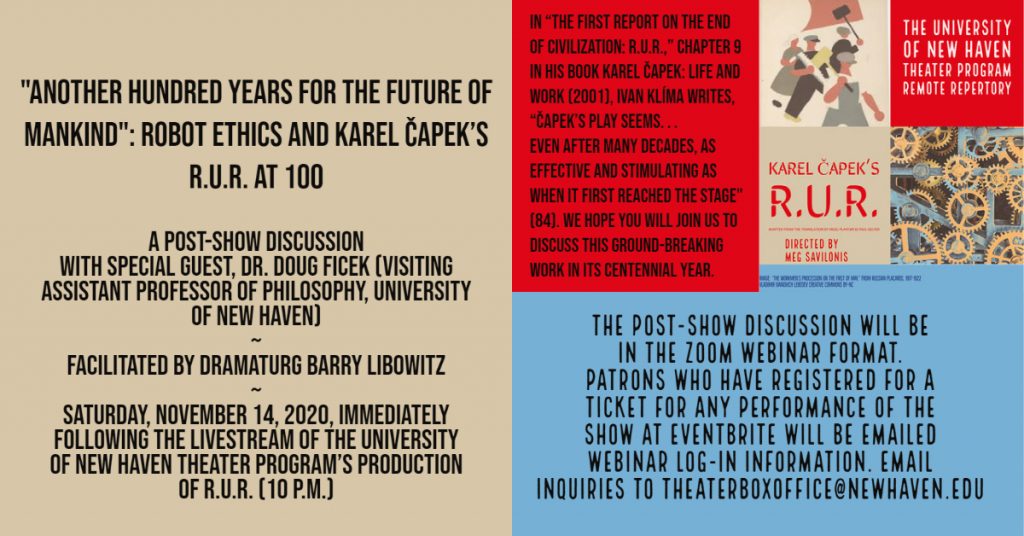“Oh, only to have a hundred years of time. Another hundred years for the future of mankind.” So says Harry Domin, General Manager of Rossum’s Universal Robots, one of the key players in R.U.R., Karel Čapek’s apocalyptic satire, which was composed in 1920 and introduced the word “robot” to the world. Composed on the heels of World War I, R.U.R., like much of Čapek’s work, “warns against state violence and the possible consequences of modern technological civilization, whose abuse could be the cause of the world’s destruction.”[1] A blend of science fiction, morality play, and farce that explores tensions at the intersections of humanity, technology, and nature, the play resonates with 21st century concerns about capital, labor, education, environmental disruption, equity, and ethics.
Reflecting on the messages of his first international hit, Čapek wrote in 1923, “The most dramatic element in modern civilization is the fact that one human truth stands against a truth no less human, one ideal against another ideal, one positive value against a value no less positive, and that conflict does not represent, as we are often told, a struggle between a novel truth and a vile, selfish evil.”[2] Indeed, in the “collective drama” R.U.R., there is no simple definition of right and wrong, no singular assignation of culpability; rather, Čapek offers audiences a complex look at systems of power and their evolution via a microcosm of philosophical and ideological points of view espoused by the characters, both human and robot—from the Kantian categorical imperative to Jamesian pragmatism to the Nietzschean Übermensch.

[1] Majer, Peter and Cathy Porter. “Introduction.” Čapek: Four Plays. Methuen, 1999.
[2] Čapek, Karel. The Saturday Review 23 July 1923, qtd. in “Introduction” by Ivan Klíma, translated by Peter Kussi, in R.U.R.,by Karel Čapek, translated by Claudia Novack. Penguin, 2004.